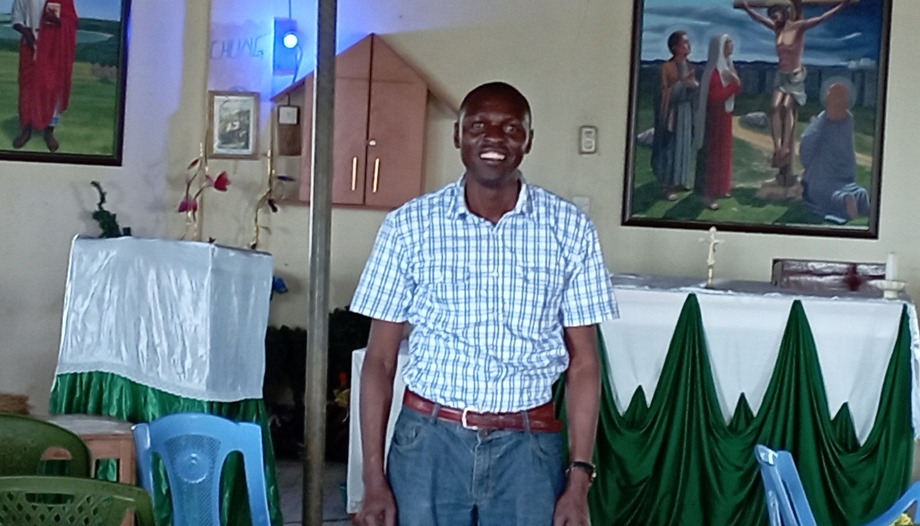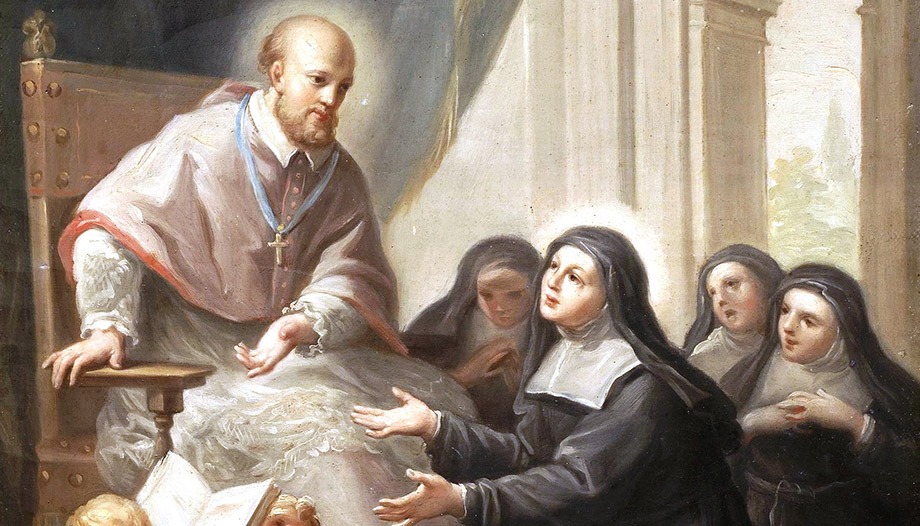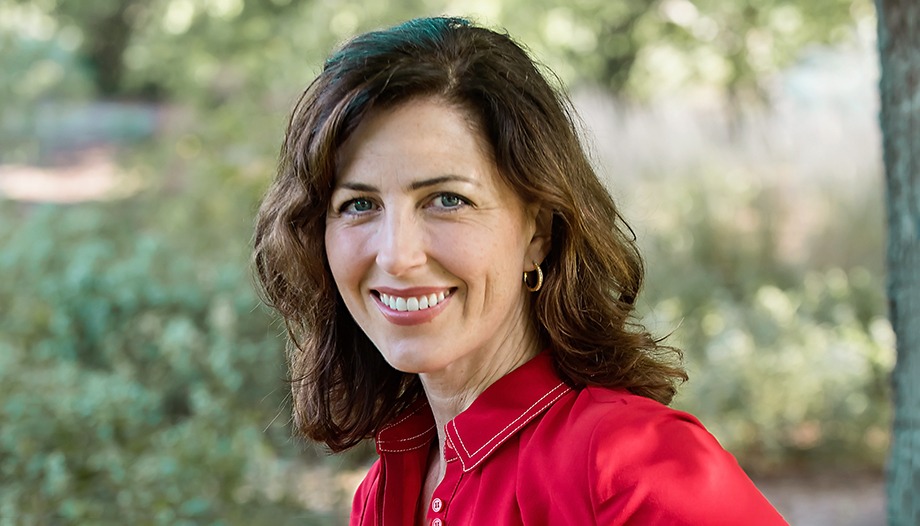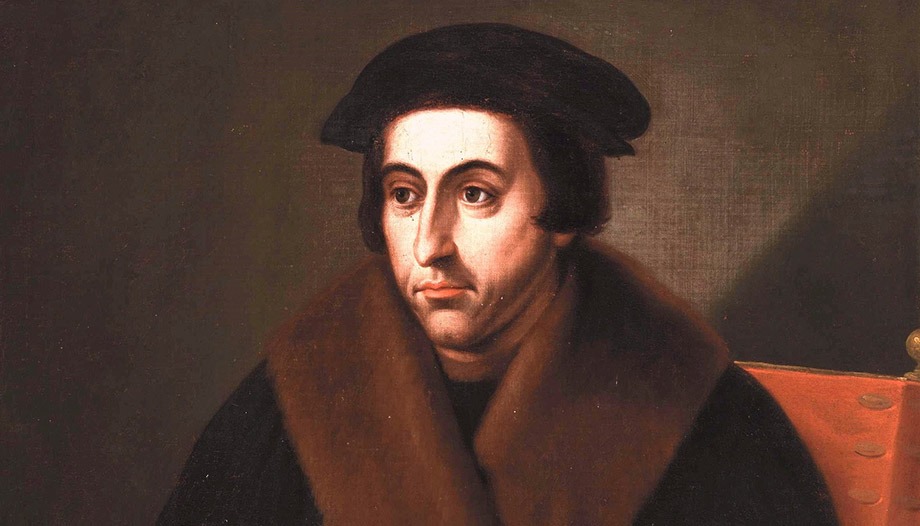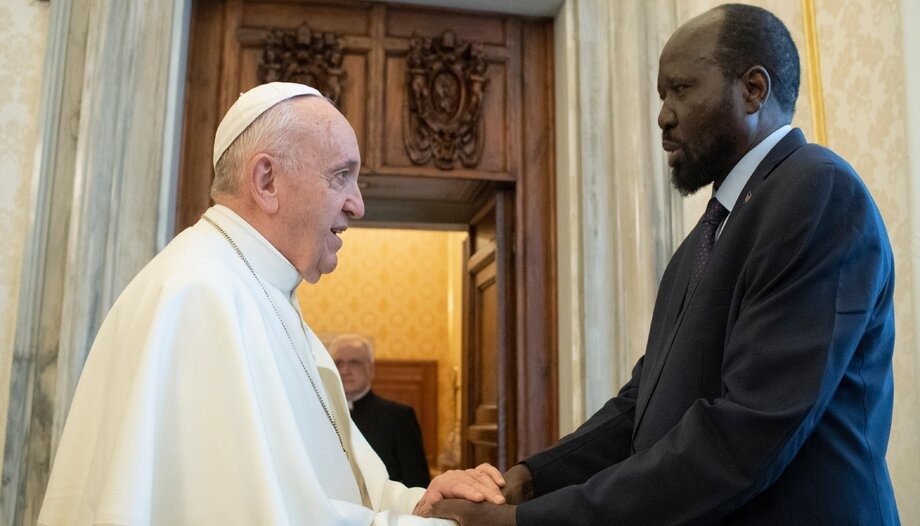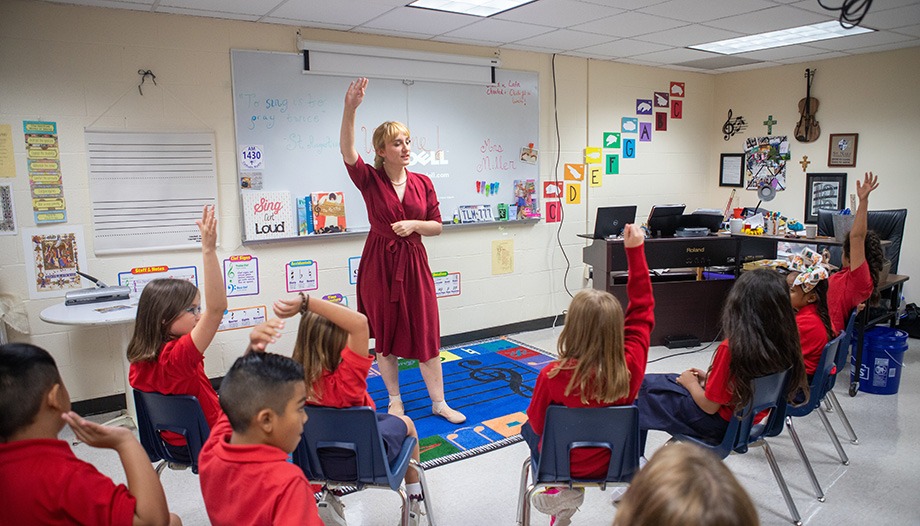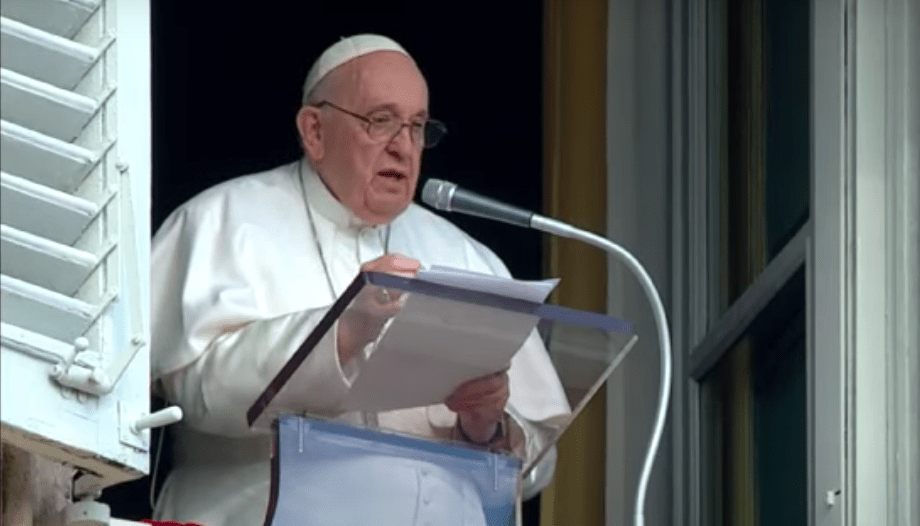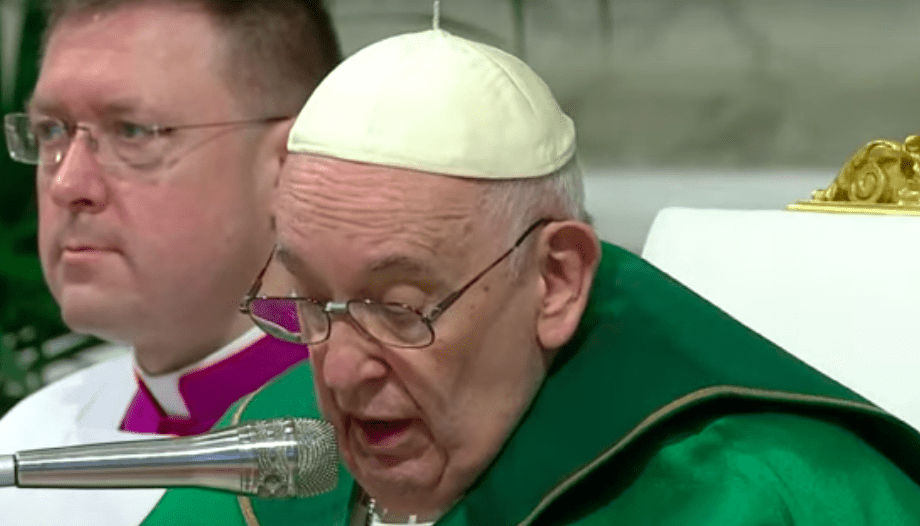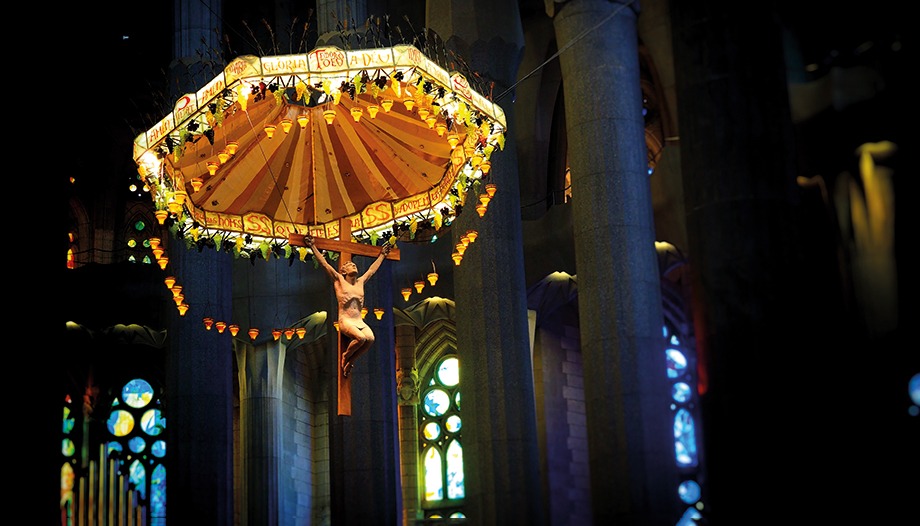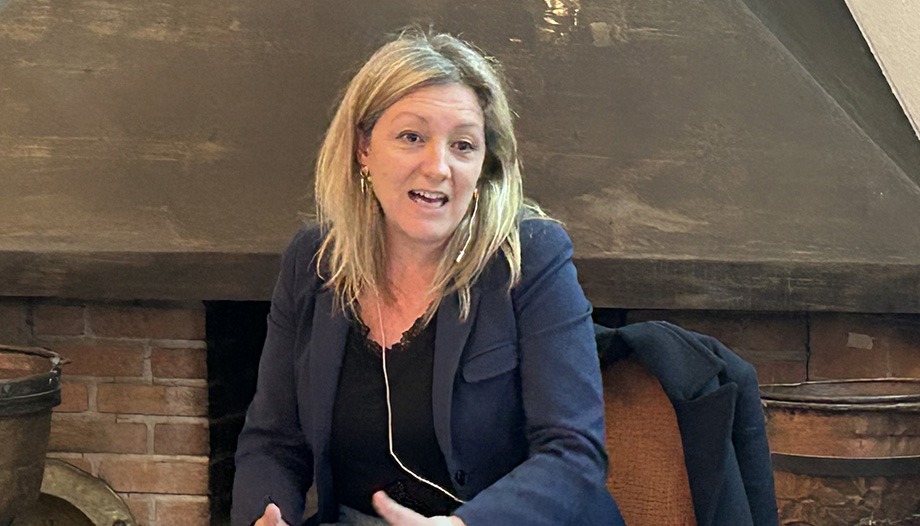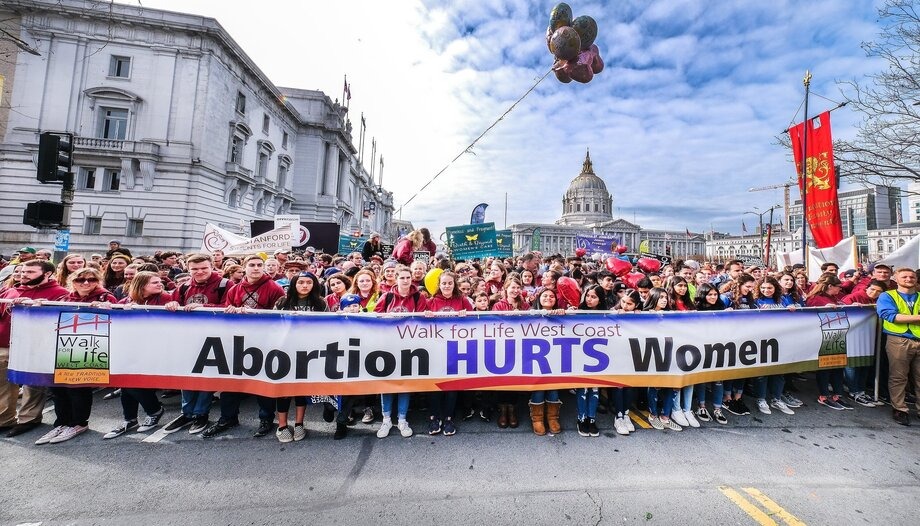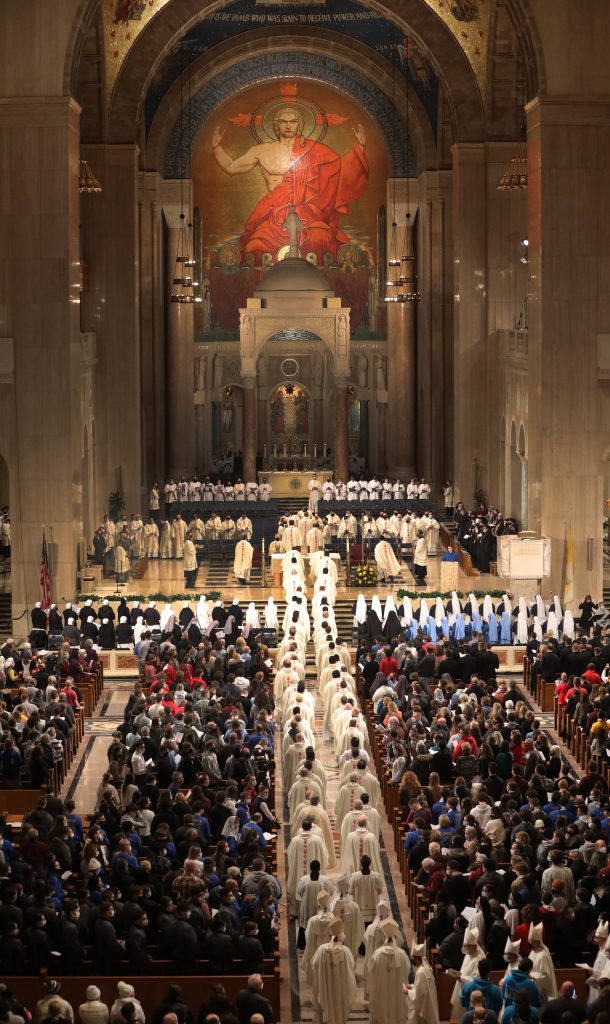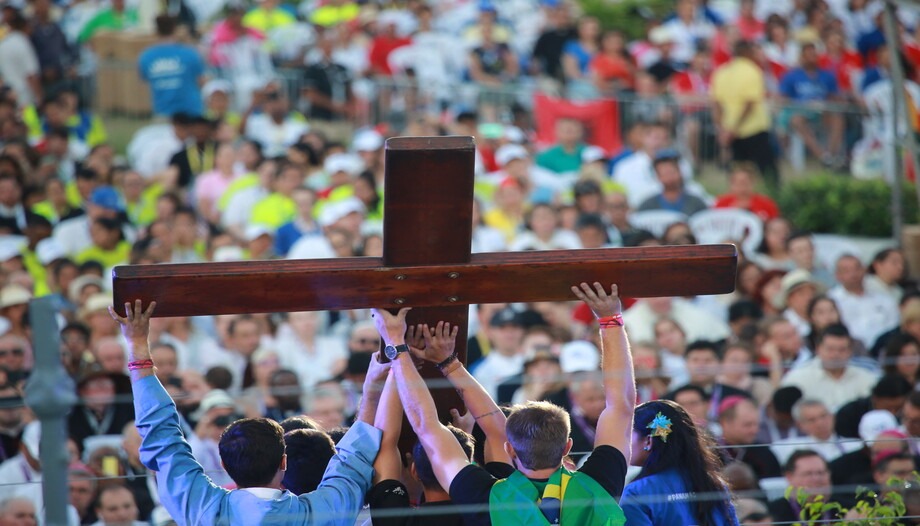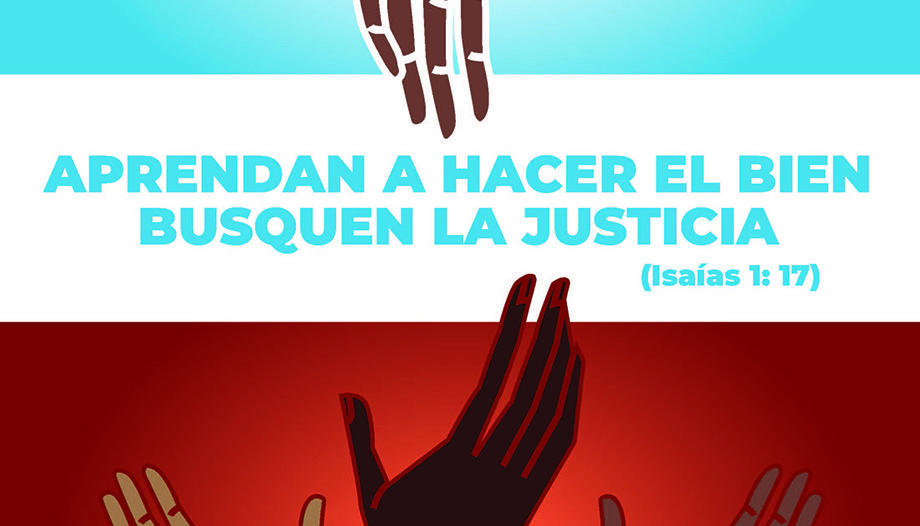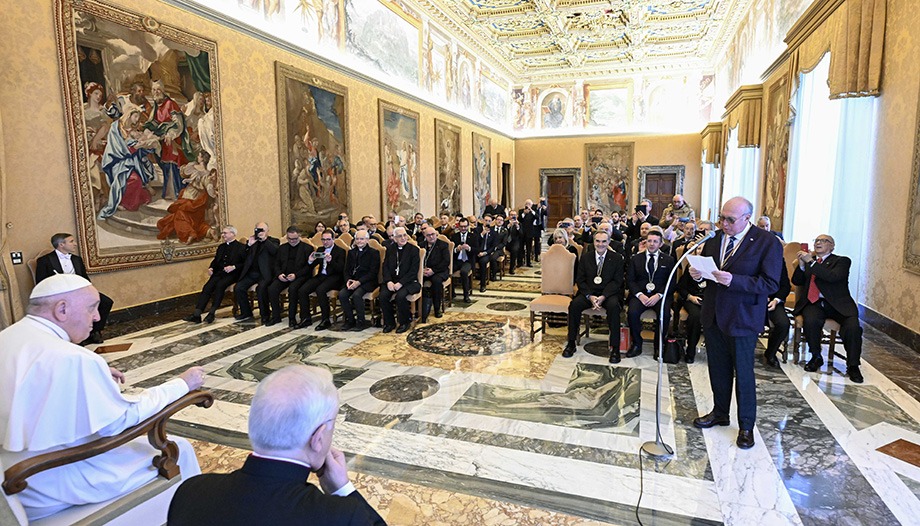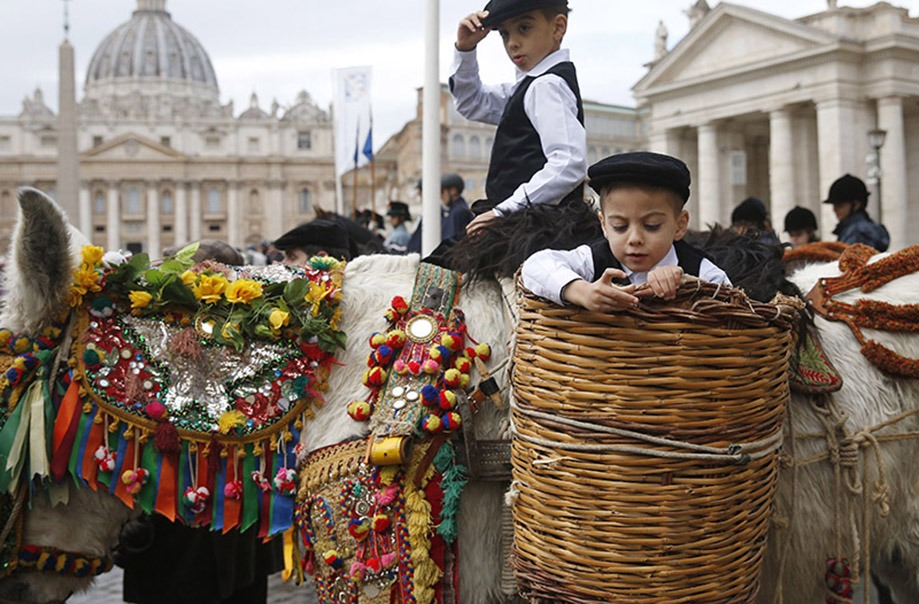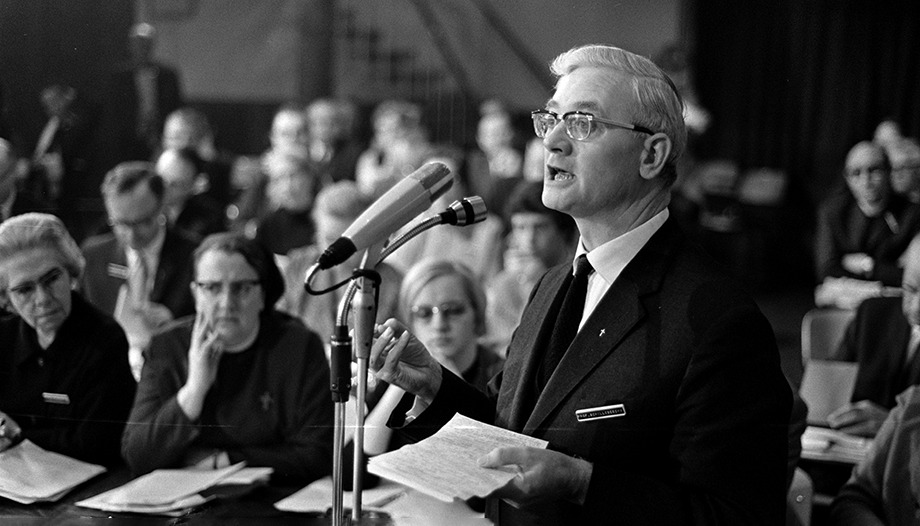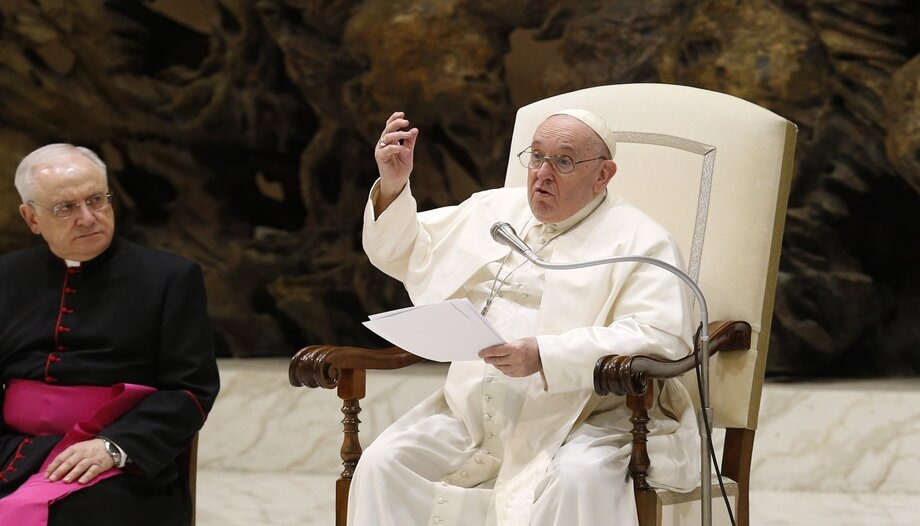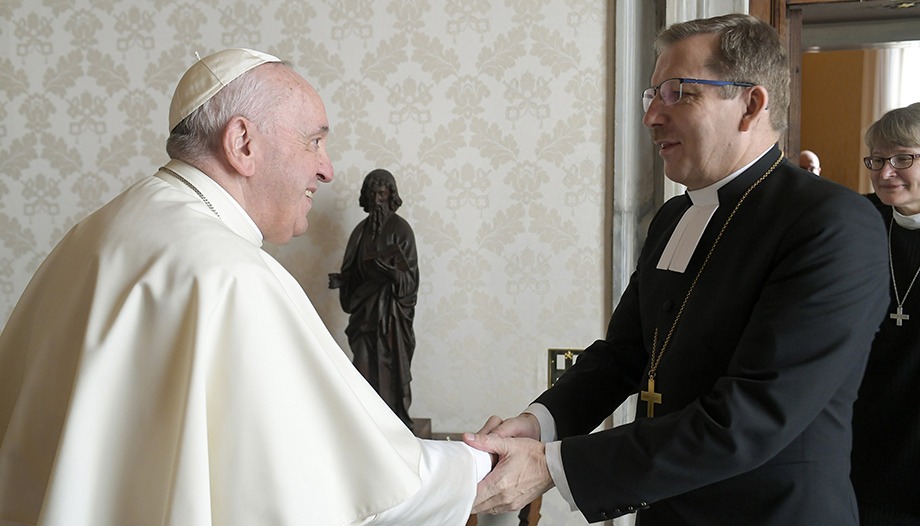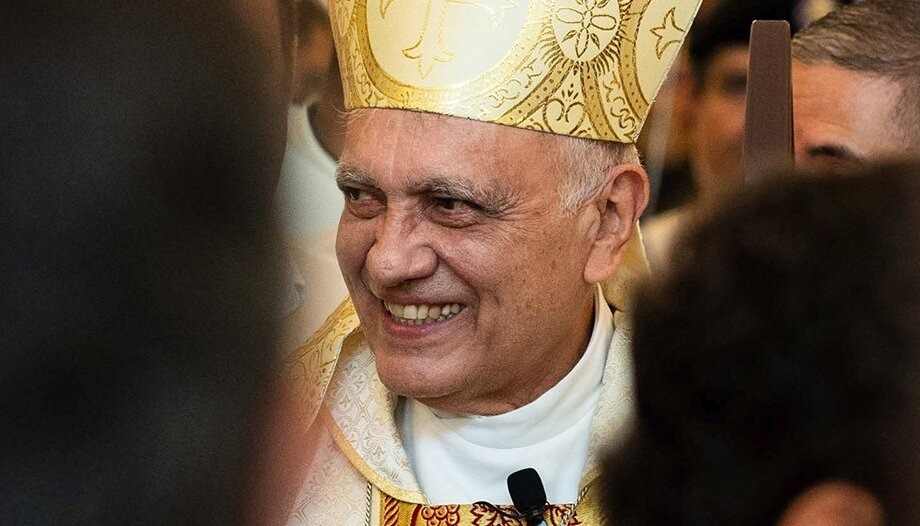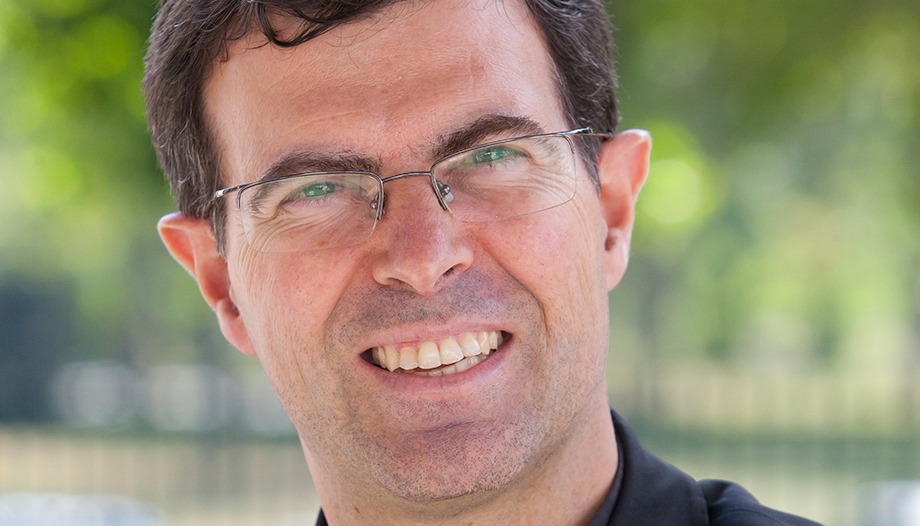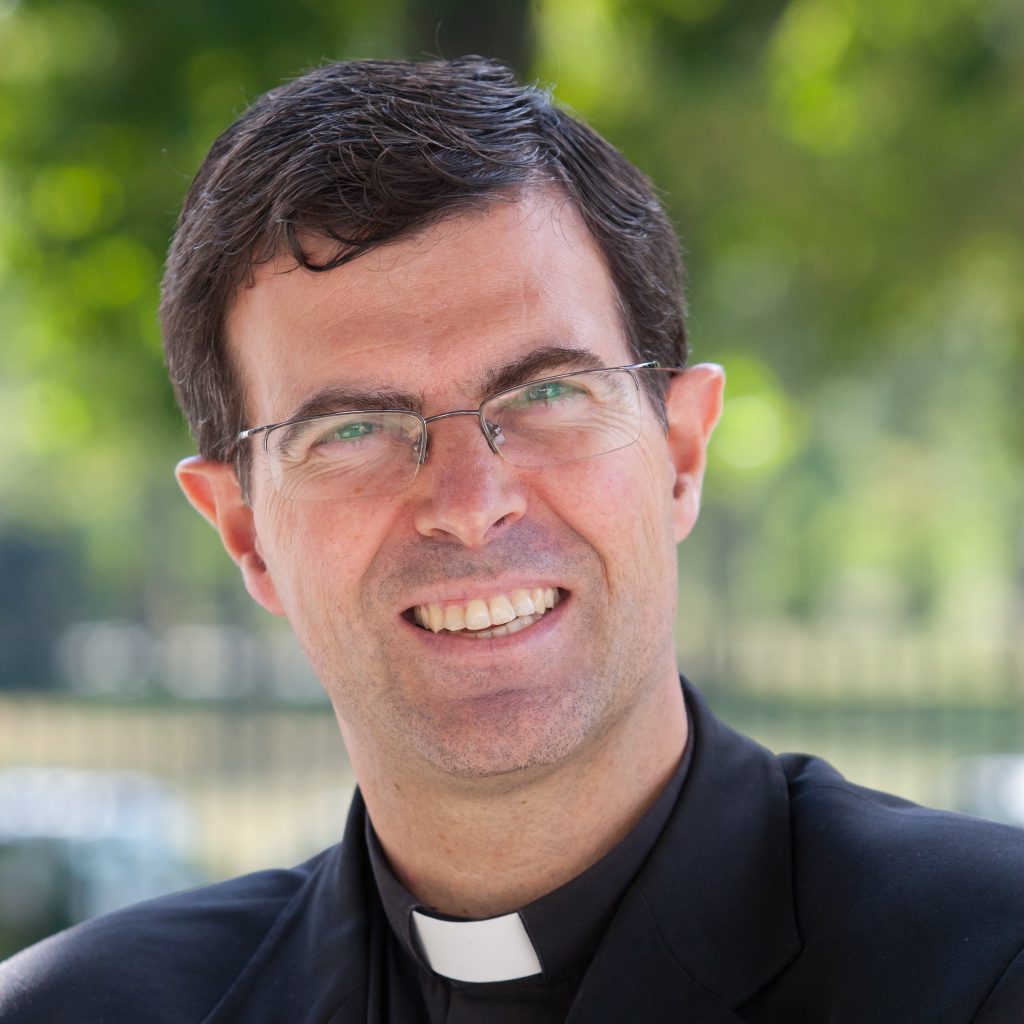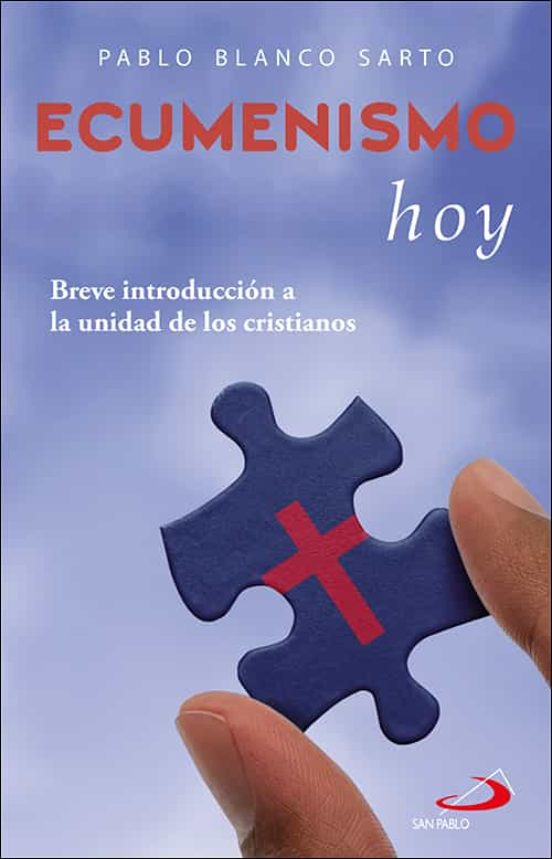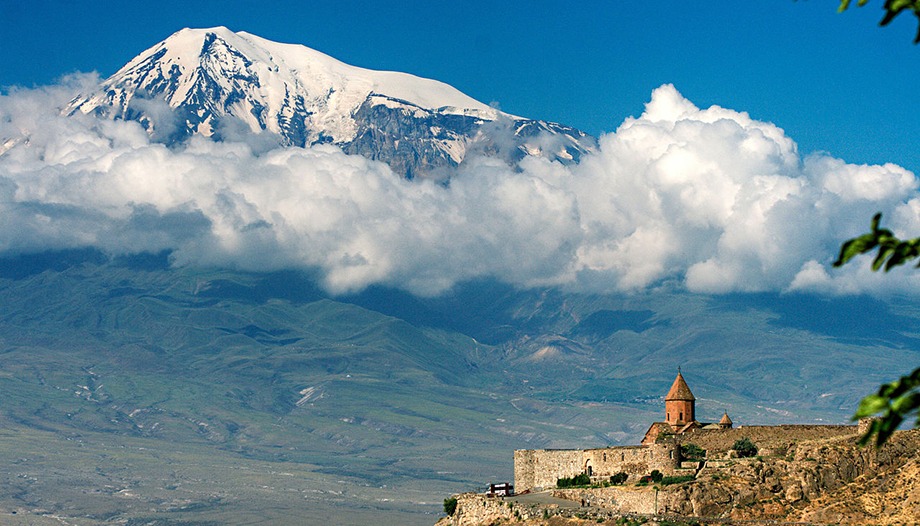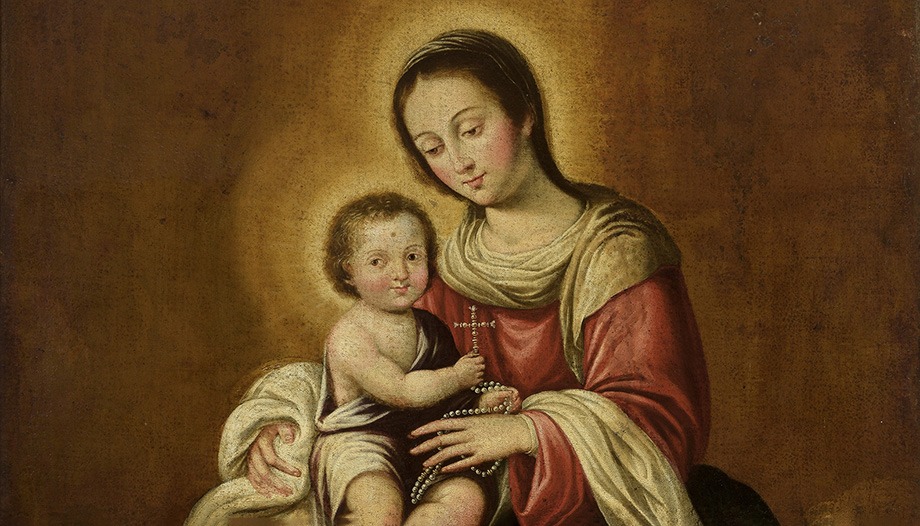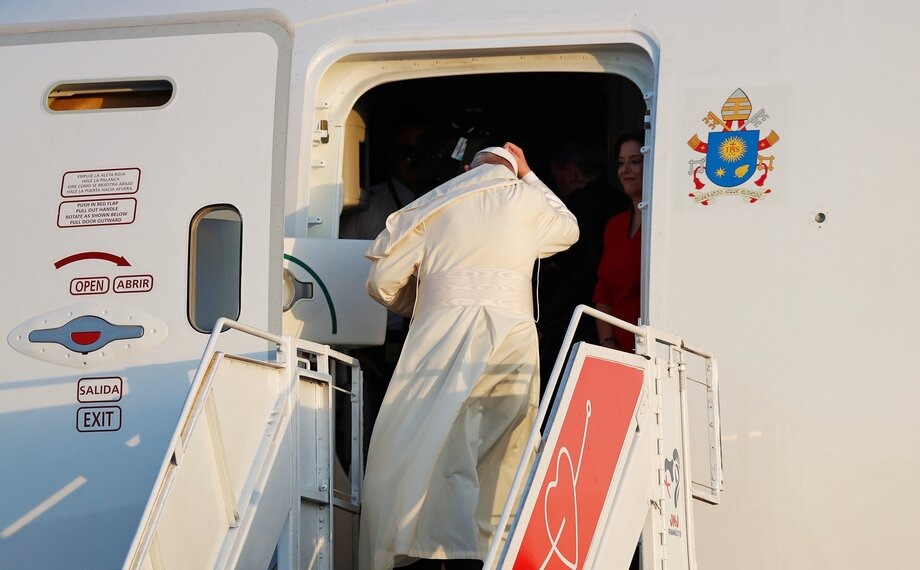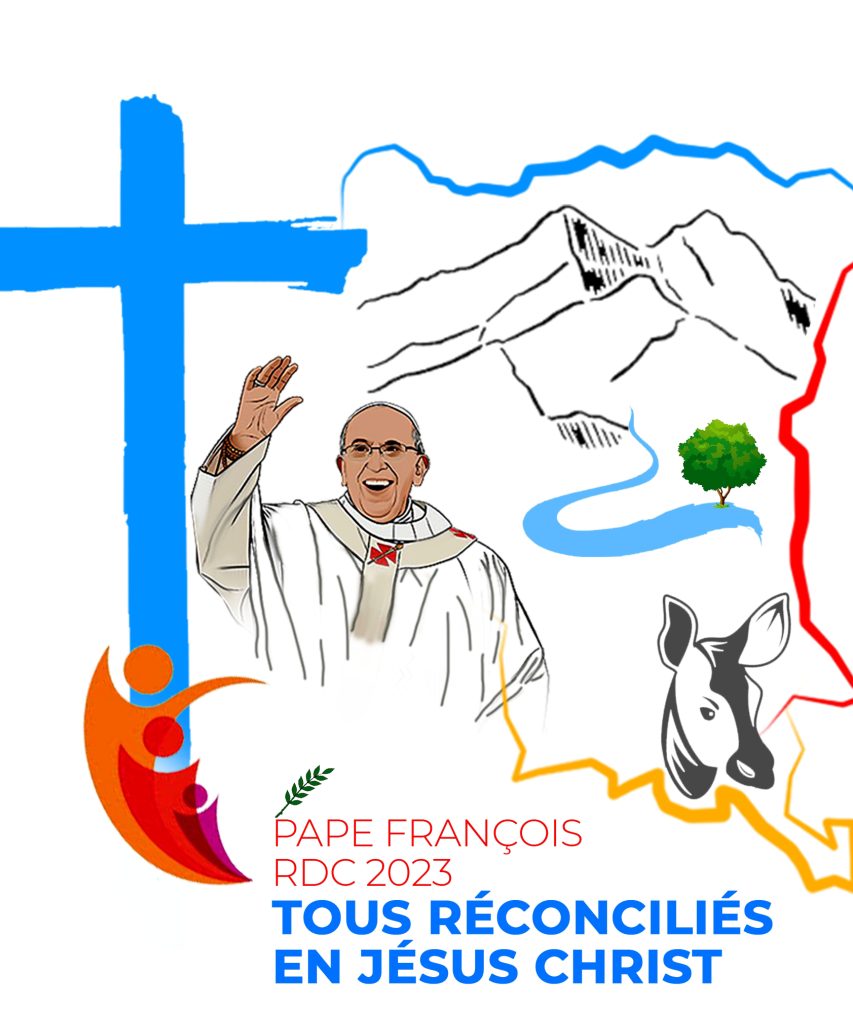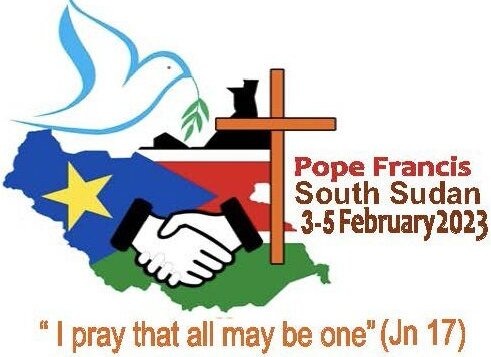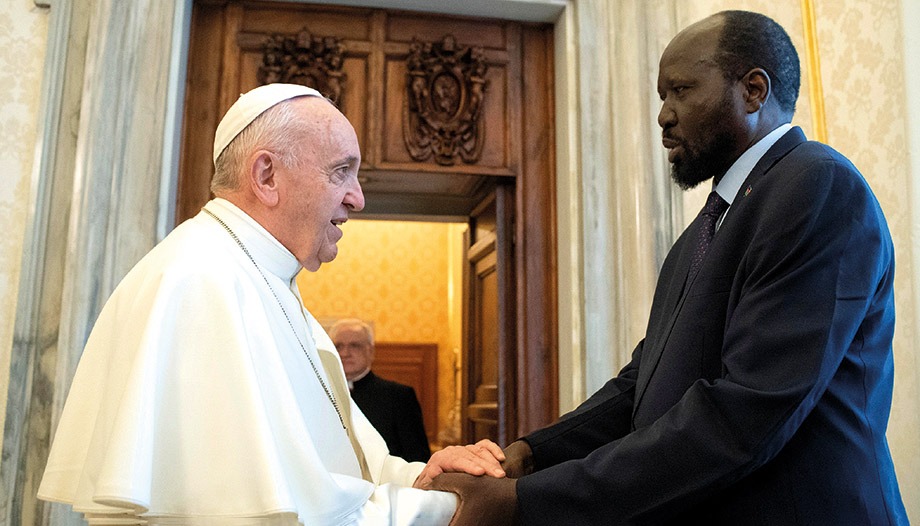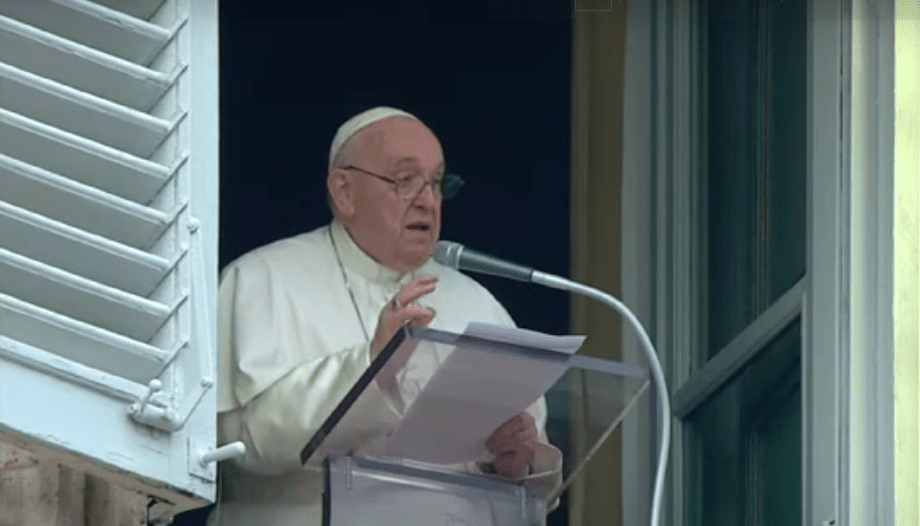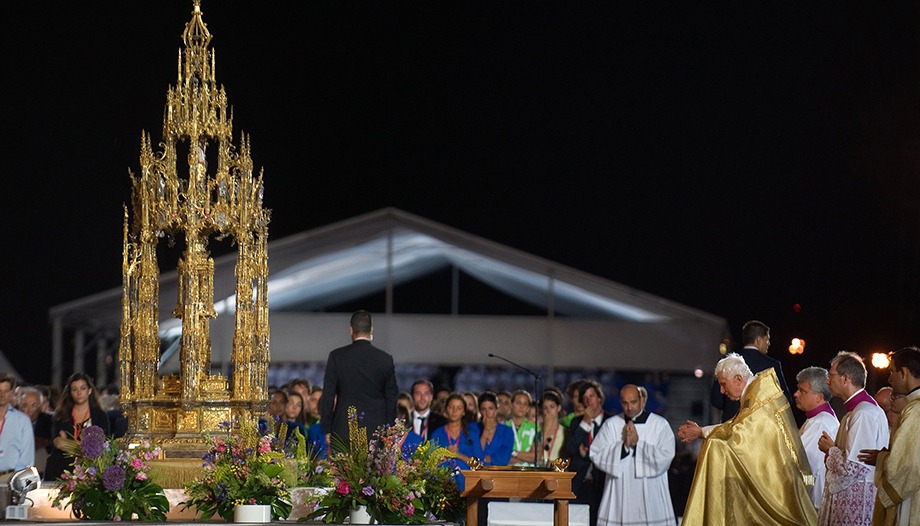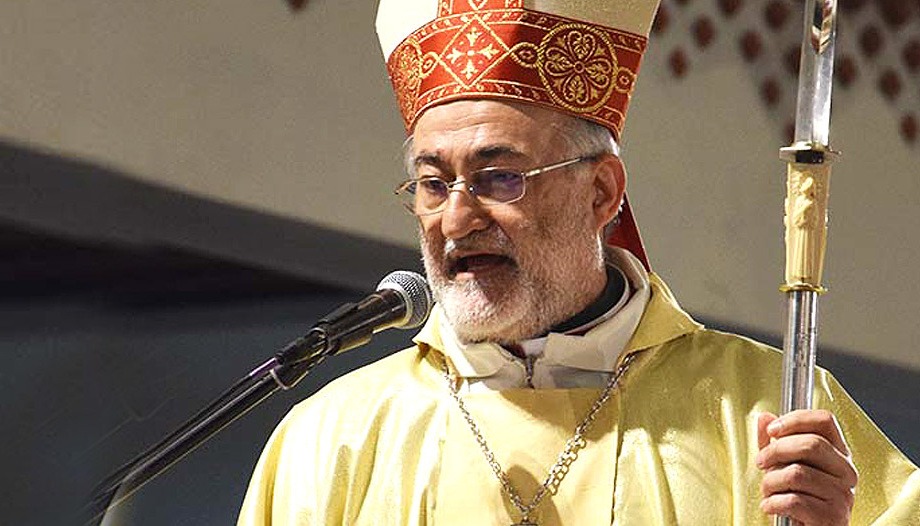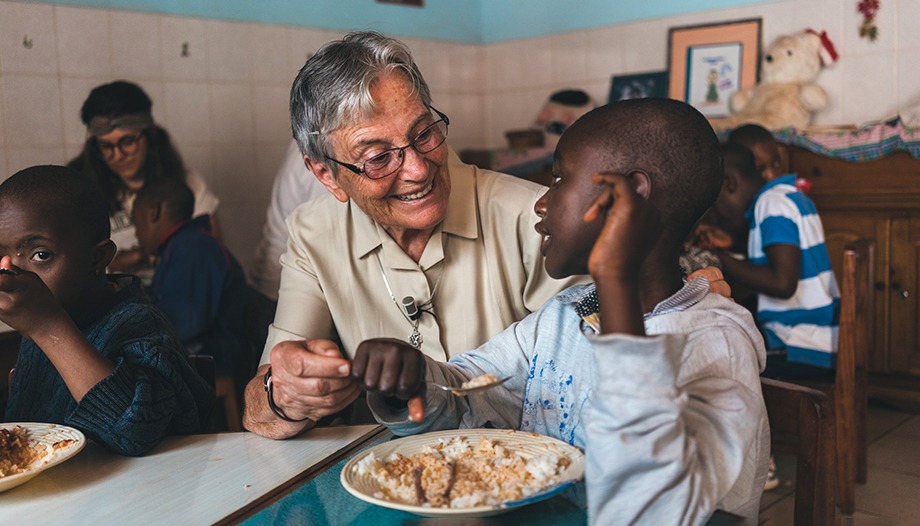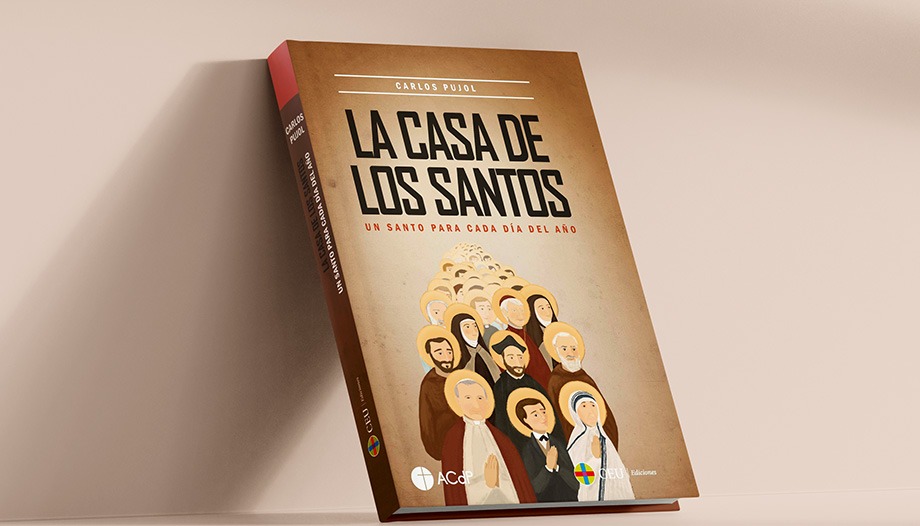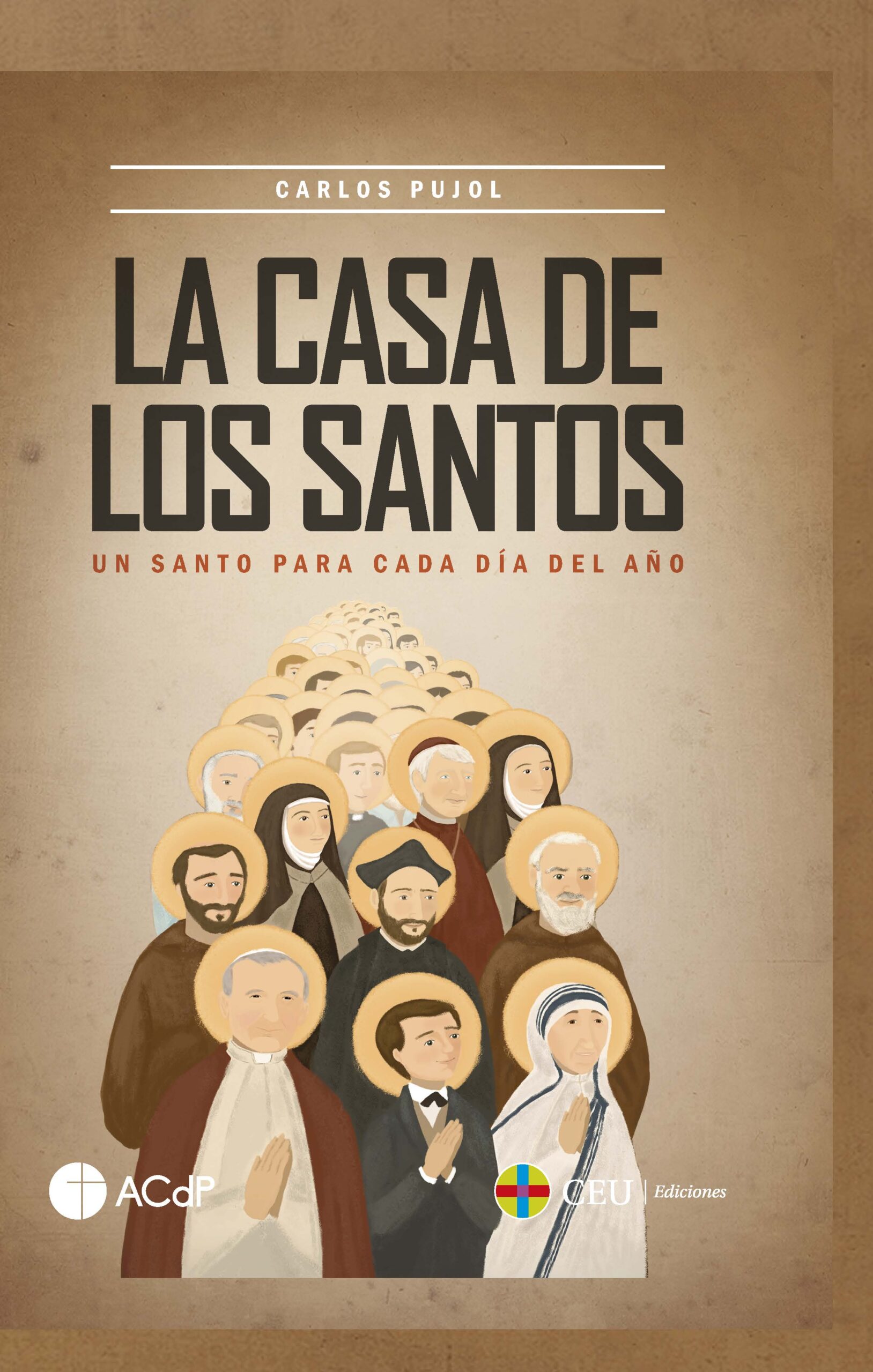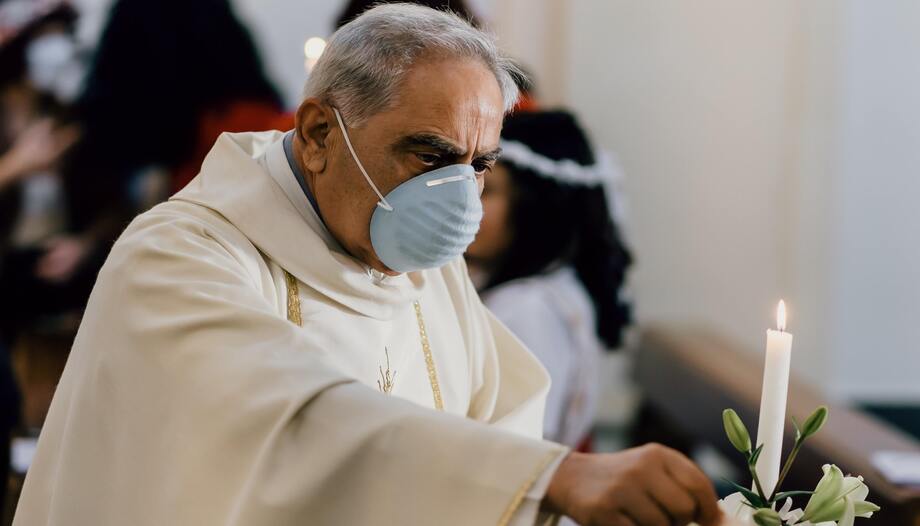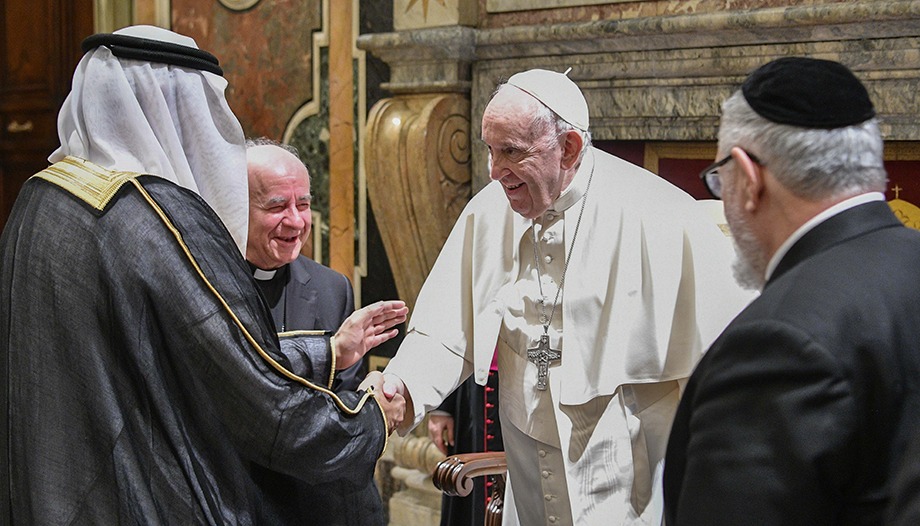Ignacio María Orbegozo y Goicoechea was born on March 25, 1923 in the city of Bilbao, northern Spain. He studied in schools run by the Piarists and Jesuits during the turbulent 1930s in his country. In 1941 he completed his high school studies and, in the same year, he entered the Central University of Madrid as a medical student.
At the suggestion of a friend of his father's, Ignacio went to live in Jenner's dorm, taken by people from the Opus Dei, which ended up changing his life. He met Josemaría Escrivá, the founder of Opus Dei, and over time his piety grew stronger, until, on September 29, 1942, he applied for admission to Opus Dei as a numerary.
After a couple of years at Jenner, Ignacio moved to another residence run by Opus Dei, also located in Madrid, called Diego de León.
After two more years, in 1945, he went to live in Granada to promote the apostolic work of the Work there. Continuing with the biennial rhythm, in 1947 he went to live in Seville, working as a boarding student at the Faculty of Medicine of the University of Seville. The following year he obtained his medical degree and continued to work in the same Faculty.
As you might expect, two years later, in 1949, Ignacio returned to Madrid and went to live in the Work's Center on Gurtubay Street.
During this period Josemaría Escrivá asked him if he would be willing to be ordained a priest, which he freely accepted, and in 1951 (another biennium) he was ordained a priest. Pastoral trips throughout Spain and even some in Morocco followed.
In August 1953, Manuel Botas, then Vicar of Opus Dei in Peru, informed the General Council of the Work that the Secretary of the Organizing Committee of the Eucharistic and Marian Congress to be held in Lima (Peru) the following year had asked him for the names of some priests of the Work whom he could invite. Among others, Ignacio Orbegozo, who had relatives in Peru, and Raimon Panikkar were mentioned.
First visit to Peru
It was in 1954 (at last the biennial rhythm was interrupted!) that Ignatius would go to Lima for the first time, at the request of Josemaría Escrivá, to participate in the Fifth National Eucharistic Congress and the First Marian Congress of Peru, and this was his first direct contact with the country on behalf of which he would participate in the Second Vatican Council.
After a long trip with stops in Lisbon, Dakar, Recife, Rio de Janeiro and São Paulo, Ignatius landed in the Peruvian capital on September 13. As the work of the Work had begun in this country the previous year, the priests Manuel Botas and Antonio Torrella were able to welcome him at the airport.
"Dr. Ignacio María Orbegozo, of Opus Dei, specially invited by the Organizing Board, dictated a series of conferences and spiritual exercises for university students, ladies and men, during the month of November," the minutes of the congress state.
PhD in Rome
From 1954 to 1956 (the biennia have returned...) he was in Rome doing his doctorate in moral theology at the Lateran University, and wrote a thesis entitled "Theological-moral study of vital inflections". During this period he was able to be closer to Pope Pius XII and to Josemaría Escrivá.
Specifically, since 1948, the Holy See has been especially committed to improving pastoral care in areas of difficult access in Peruvian territory. To this end, it erected territorial prelatures and entrusted them to various ecclesial institutions. Josemaría Escrivá himself tells how it was Opus Dei's turn:
Monsignor Samore came to my house and told me: "I have come on behalf of the Holy Father to see if you want to choose a prelature from those of Peru". And I answered him: "I do not want to choose any prelature, nor do we want to be prelates of anything". "But the Pope is so excited," Monsignor Samorè replied. "Well then, I won't choose it," I replied. "Let the others choose, and the one that no one wants, that's the one we'll keep." And we got the big piece, the one no one wanted.
And indeed, on April 18, 1956, while Ignacio Orbegozo was still in the Eternal City, Escrivá addressed the following words to Manuel Botas:
You can tell the Nuncio - on my behalf - that we would have no objection (on the contrary) to take charge of a mission territory in Peru, provided that we begin our work there in the second half of next year. You can tell him that I have spoken to Bishop Samorè.
Botas then took it upon himself to communicate this to the apostolic nuncio in Lima, Francesco Lardone, who immediately wrote to Josemaría Escrivá. The latter proposed Ignacio Orbegozo or Manuel Botas himself as prelate, but made it clear, however, that he preferred the former. And so it was. Having finished his thesis in June 1956, Orbegozo returned to Spain, but shortly afterwards, in October of the same year, he had Peru as his pastoral destination, and before leaving he paid a short visit to Josemaría Escrivá in Rome.
The Yauyos Prelature
In 1957 Pope Pius XII erected the territorial prelature of Yauyos, in Peru, made up of the two civil provinces of Yauyos and Huarochirí, suffragan of the archdiocese of Lima, in order to improve the pastoral care of the inhabitants of that extensive mountainous area, and entrusted it to Opus Dei. In 1962, the civil province of Cañete was annexed, transferring the seat to the city of San Vicente de Cañete.
Thus, Ignacio Orbegozo once again showed himself available, accepted what God was asking of him through the Church, and faced the challenges that his mission presented to him.
To learn more about the ecclesial and social circumstances in Latin America and to better prepare himself for his new ministry, Orbegozo traveled to Mexico, Guatemala, Cuba, Colombia, Argentina and Chile, and on October 2, 1957, he was received as prelate of Yauyos by its inhabitants and authorities. As reinforcement, five other priests members of the Priestly Society of the Holy Cross accompanied him: Frutos Berzal, Alfonso Fernández Galiana, José de Pedro Gressa, Jesús María Sada Aldaz and Enric Pèlach i Feliu.
Father conciliate
When the Second Vatican Ecumenical Council began on October 11, 1962, among the 2,450 bishops summoned was the prelate nullius of Yauyos, Ignacio Orbegozo. He participated as a Council Father in the four sessions of the Council, although he would only be ordained bishop between the second and third sessions, on January 25, 1964 in Lima, at the age of forty.
Being present throughout the Council, he took part in the voting of nine of the sixteen documents published by the Council assembly. But his participation began years earlier, when, on June 18, 1959, Cardinal Domenico Tardini asked him - like all the other future Council Fathers - to collaborate in the pre-preparatory phase of the Council.
In a three-page letter dated September 12, 1959 and written in elegant Italian, Orbegozo states his "animadversions, consilia et vota"(observations, advice and vows) regarding what should be discussed on such a solemn occasion.
He begins by noting the good success of the "experiment" put into practice in his prelature, and in this sense suggests "to favor and encourage as much as possible this new form of participation of the diocesan clergy in the life of evangelical perfection".
He then mentions that the main difficulties he encounters are the shortage of clergy and the numerous demands of the faithful, which cannot be met.
He then stops to consider the benefits for evangelization that he sees in the good formation of the laity, especially those who have "the new energies and modern methods of apostolate of the Secular Institutes", alluding on this and other occasions to the members of Opus Dei itself who serve him as solid support in his pastoral mission in the Andes.
He then conveys that he considers ripe, at least for discussion at the Council, the question of the institution of the permanent diaconate, without the obligation of ecclesiastical celibacy, as a remedy for the aforementioned shortage of clergy, urging also that pious unions of sacristans be facilitated, as already existed in Austria.
Noting that in his prelature many couples were still in a state of concubinage, he proposed, on the basis of canon 1098 of the Code of Canon Law, to extend the case of marriage "... to the state of concubinage".coram solis testibusThe "more situations" to include more situations.
He also proposes that the Divine Office, that is, the prayers proper to priests and religious gathered in the Breviary, be reduced so that their recitation does not exceed twenty minutes a day. But he clarifies that, in his opinion, this reduction should not affect religious and canons, but "all other" priests "engaged in the care of souls". That is to say, he does not propose it only to the clergy of his territorial prelature or of all the territorial prelatures, but indeed to the whole Church, except for religious and canons.
Finally, he calls for more intense Church assistance to underdeveloped countries, where the mission territories are located, with the Church's representatives being more actively present in the international organizations created to deal with the problems of these countries.
These were, therefore, his six proposals in the ante-preparatory phase: promotion of Secular Institutes, discussion of the institution of the permanent diaconate, facilitation of pious unions of sacristans, extension of the cases of marriage "...", and the "promotion of the institution of the permanent diaconate".coram solis testibus"The Church's commitment to the Church in the developing countries has been strengthened through the reduction of the Divine Office for the secular clergy, and the intensification of ecclesiastical aid to underdeveloped countries.
Therefore, Orbegozo has shown himself to be in tune with the most urgent ecclesial needs of his time, since his suggestions have been positively received and discussed, as evidenced by what was ultimately approved.
Once the Council had begun, its most intense participation took place in the third session, which lasted from September 14, 1964 to November 21, 1964, after which the constitution was promulgated. Lumen Gentium and decrees Unitatis Redintegratio y Orientalium Ecclesiarum.
On the other hand, in the first period, between October 11, 1962 and December 17, 1962, there are no documented words or acts of Ignacio Orbegozo in relation to the Council, probably because everything was still in its early stages.
But in the second period, which lasted from September 29, 1963 to December 4 of the same year, during the third public session, Orbegozo signed the constitution on the sacred liturgy of December 4, 1963, later called Sacrosanctum Concilium, and the decree on the mass media of November 24, 1963, later named Inter MirificaThe first two documents approved, the only ones in this second year of meetings.
In turn, from September 14 to November 21, 1964, in the third conciliar period, it was the turn of the Peruvian bishops to speak in the Vatican Aula, always in Latin. Ignacio Orbegozo and four other Peruvian bishops spoke.
One of them, Luis Sanchez-Moreno, who was the first Peruvian member of Opus Dei, testified to Orbegozo's talk as follows:
One of those papers that, after being read in private, caught our attention because of its richness of thought, filled those of us who knew Ignacio with mischievous astonishment, when faced with the tiredness of the venerable assembly, after many hours of endless readings, standing at the microphone, he said, unusually, that his proposal was to be delivered in writing. Precisely he, who was characterized by his great capacity to speak. His gesture provoked prolonged and loud applause inside the beautiful and imposing basilica.
Ignacio Orbegozo himself, in an informal letter of October 26, 1965, to friends and family, wrote about this episode, which was highlighted in the press:
Other "speakers" began to speak and - as we had done our little job behind the scenes - there were many who played the flute with our same notes. And my intervention was reducing its limits and content! Even more, when the loud things were said and I was spared. So, when it was my turn to speak, we proposed the stratagem that earned me an undoubted "success". As my speech was already very short, I had learned it by heart a while before, I went down to the microphone, said that to avoid the tedium of repetitions - a plague of speeches, usually - I would not use the right to speak and I would just say that I fully agreed with what had been said [...]. And all in less than two minutes and by heart! Applause in the hall and commendatory gratitude from the moderator on duty, who happened to be Cardinal Suenens. As far as memory is concerned, I admit that it was a "revenge and revenge" move for the much I suffered with the Latin at the Lateran University, although with a trick, it had its effect!
However, apart from this anecdote, this intervention of his dealt with the outline of the decree on the apostolate of the laity, future Apostolicam ActuositatemThe Council of the Congregation, at its Ninety-eighth General Congregation on October 9, 1964, together with 2069 other Council Fathers.
He also intervened in the second part of the outline of the constitution on the Church in the contemporary world, later named Gaudium et SpesOrbegozo, together with 2176 other Council Fathers, participated in the One Hundred and Thirty-ninth General Congregation on September 30, 1965. But, in the personal observations exhibited during the Council, Orbegozo expressed his opinion about the outline of the decree on the ministry and life of priests, later known as Presbyterorum OrdinisThe document was approved only the following year, on December 7, 1965, the eve of the closing of the Council, and it was possible to have direct access to it.
In a page and a half of perfect Latin, Ignacio Orbegozo expresses his complete satisfaction with the text in question and requests that no changes be made to it. He points out the importance of the family and of spiritual direction in arousing and accepting the priestly vocation among the faithful. He asks that in the phrase: "inter Presbyteros, sicut inter ipsos primos Apostolossemper adfuerunt nonnulli, et quidem optime meritiIn the first case, the phrase is misleading, since some apostles, even if they were married when they received their vocation, left everything ("...").relictis omnibus", Lk 5:28) to follow Christ, and one might logically think that this included one's own wife; instead, according to him, the second sentence should be eliminated as inappropriate, if one considers the confusion born in some sectors of public opinion caused by those who considered priestly celibacy an "unnecessary denial".
He then asks that it be clearly stated that perfect chastity is a sign and consequence of man's integral and complete love for God, and that the Pauline doctrine of "perfect chastity" be made explicit.undivided corde" (1Cor 7:34), "so that the arguments for the desirability of the priest being a living witness of this integral love and complete self-giving of the person to God and to all souls, not only according to the counsel of the Holy Spirit which St. Paul refers to, but also according to the living example of Jesus Christ Eternal Priest, who placed the assumed humanity in full service of the priestly mission, as also according to the example of the Blessed Virgin Mary, who so directly cooperated in the priestly mission of her Son, can be affirmed with greater force and efficacy."
Finally, he stresses the importance of the annual retreat course for the spiritual life of priests, "above all because of the great and continuous activity to which the pastoral duties of the human world oblige them", although he prefers that this not be an obligation to be included in the Code of Canon Law. He postulates rather that a middle way be followed: that it be recommended, but "leaving to each Episcopal Conference or Ordinariate the way to follow such a recommendation, according to the peculiarities and possibilities of each ecclesiastical circumscription".
As a result of the collaboration of the Yauyos prelate in Presbyterorum OrdinisFrutos Berzal, a Spanish priest who worked in that territorial prelature from the time it began until his death in 2016, says: "Since his arrival in Peru, Monsignor Orbegozo and the priests who wanted to accompany him in the early days set out - encouraged by the founder of Opus Dei - not only to bring the testimony of the Word of God to every corner of the provinces of Yauyos, Cañete and Huarochirí, but also to foster priestly vocations". Although the local major seminary was only founded in 1971 by his successor, Luis Sanchez-Moreno, much of what made this great step possible was carried out by Ignatius since 1957, such as the founding of the minor seminary itself.
In the fourth and last conciliar period, inaugurated on September 14, 1965, and closed on December 8 of the same year, during the eighth public session, the then prelate of Yauyos signed the dogmatic constitution on divine revelation, later known as Dei Verbumand the decree Apostolicam Actuositatem. And in the same period, but in the ninth public session, he signed the pastoral constitution. Gaudium et Spes. In addition, his name is included in the list of participants in the elaboration of the outline of the aforementioned decree on the lay apostolate of 1965, and in the elaboration of the outline of the pastoral constitution on the Church in the contemporary world of 1965, also mentioned above.
On the outline of what it would become Apostolicam ActuositatemEsteban Puig Tarratsque Orbegozo refers:
In this regard, he wrote to the priests of Yauyos: "Yesterday the Prelate of Yauyos [himself, speaking in the third person] spoke on the little matter of marriage and the sanctity of the family... This time, in a hurry and all, he blew the ten minutes of the law! And if they had let me say it in Spanish and without a clock... I would still be there and most of them would not have been bored!". Following the dates of the letters he sent from Rome, Orbegozo kept notifying his priests about the events of the Council, his meetings with St. Josemaría and also about the steps he was taking to obtain the financial means necessary to finish the work on the cathedral and the minor seminary in Cañete.
Therefore, in the third and fourth sessions of the Council, Prelate Orbegozo contributed actively, with oral interventions before the assembly and written interventions sent to the conciliar commission that was preparing the outline of the decree in question.
Seven other members of Opus Dei participated directly in the Council: Luis Sánchez-Moreno and Alberto Cosme do Amaral as council fathers; and Álvaro del Portillo, Amadeo de Fuenmayor, José María Albareda, Julián Herranz and Salvador Canals as periti. Together with them, Orbegozo was delighted to see the universal call to holiness, the core of the message preached by Josemaría Escrivá and embodied in Opus Dei, being solemnly affirmed by the Ecumenical Council itself in the dogmatic constitution Lumen Gentium. Yet another proof - in case there were any doubts - that all this was a significant part of God's will for the world in the 20th century.
During this period, Ignacio Orbegozo's relationship with ecclesiastical personalities intensified. His closeness with Ildebrando Antoniutti, then Cardinal Prefect of the Congregation for Institutes of Consecrated Life and Societies of Apostolic Life, and with Romolo Carboni, then Apostolic Nuncio in Peru, stands out.
An event of note during the Council, although not directly related to it, was the inauguration of the ELIS Center in Rome. John XXIII had decided to allocate the funds collected on the occasion of Pope Pius XII's eightieth birthday to social work, and entrusted Opus Dei with its realization and management.
Paul VI decided that such an inauguration should take place during one of the sessions of the Council, as transmitted by Angelo Dell'Acqua. Therefore, on November 21, 1965, Ignacio Orbegozo and Luis Sanchez-Moreno assisted at the Pope's inaugural Mass in this social center.
The first prelate of Yauyos was there for only a few more years. After eleven years in this position, in 1968 he was appointed bishop of Chiclayo (Peru), his second bishop, where he would remain for no less than thirty years. He died on May 4, 1998 in Chiclayo, at the age of 75, Orbegozo has not written any book about his experience of the Council.
It has been verified that Ignacio Orbegozo's direct contribution to the Second Vatican Council, in addition to his prayers and personal sacrifices, although he has had contact with various documents, has been concentrated on Apostolicam Actuositatem, Presbyterorum Ordinis y Gaudium et Spesin the drafting of which he diligently participated.





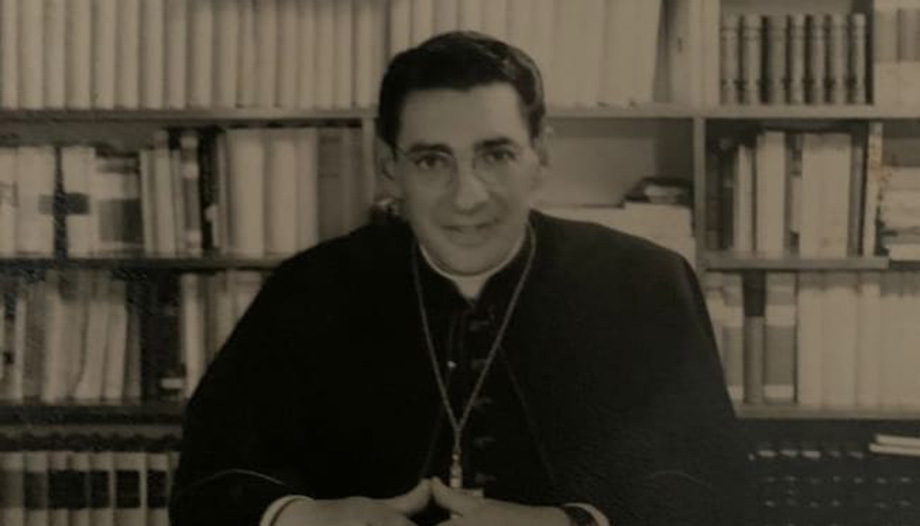





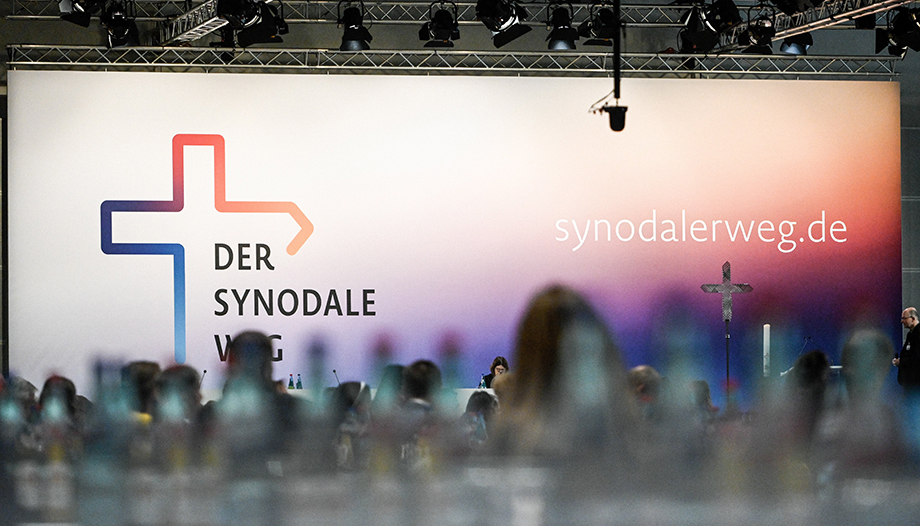
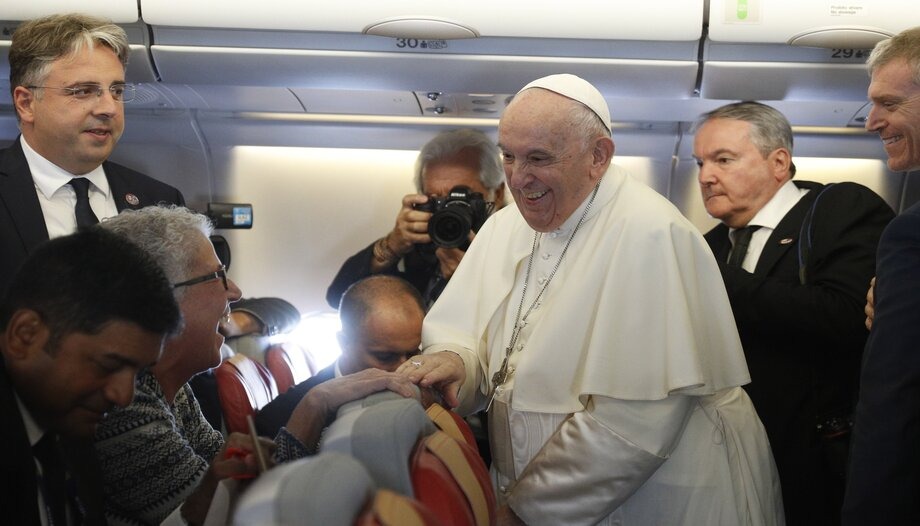
 Pope to journalists: "A mission to explain the world and make it less obscure".
Pope to journalists: "A mission to explain the world and make it less obscure".
